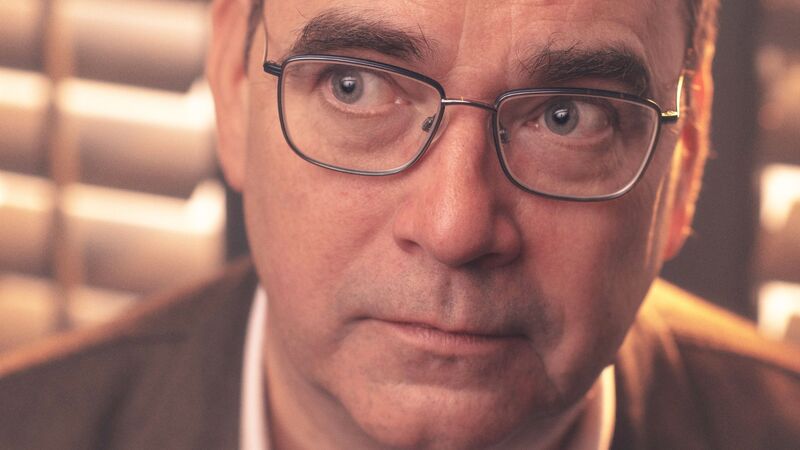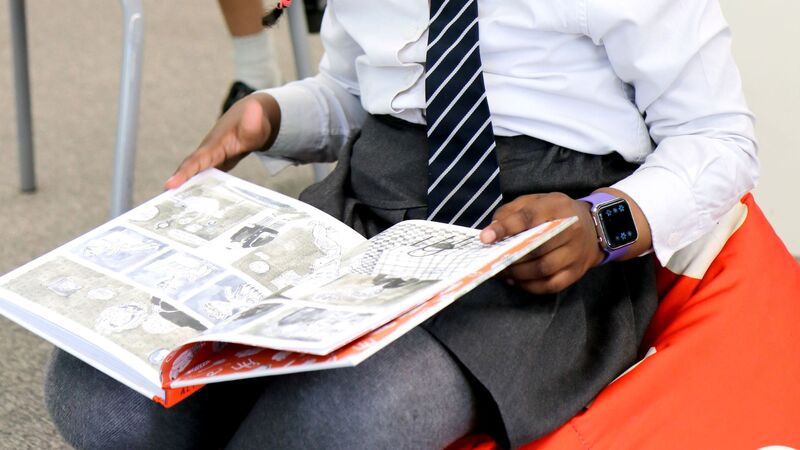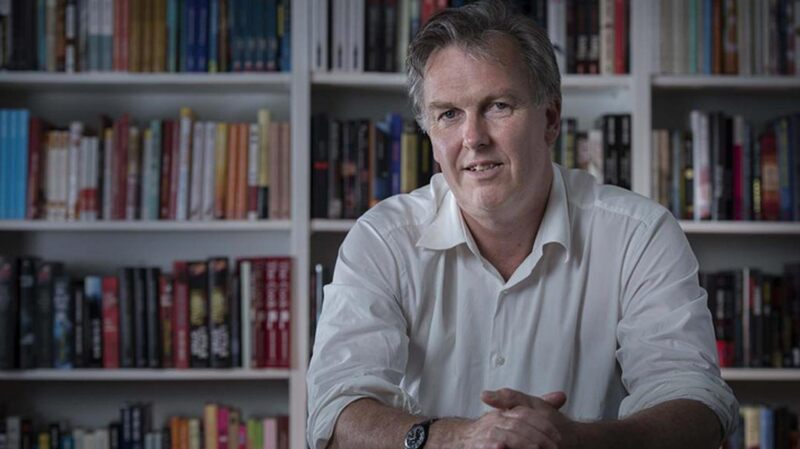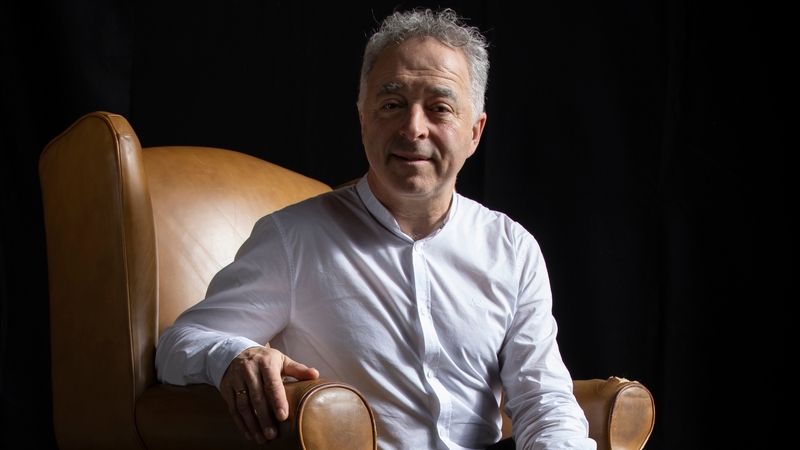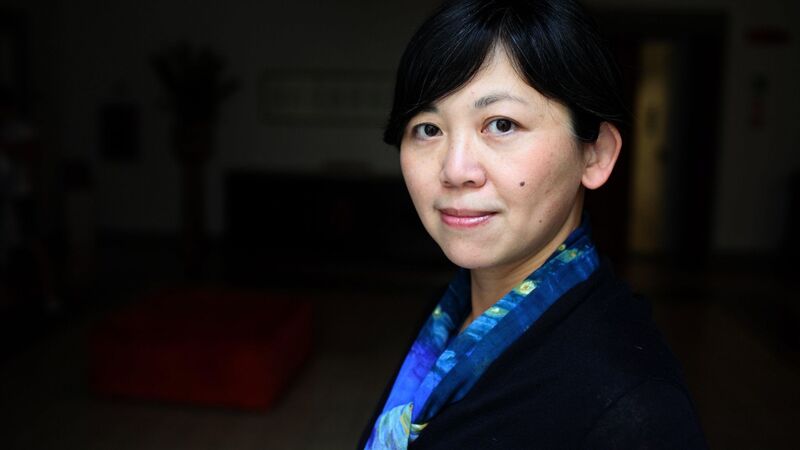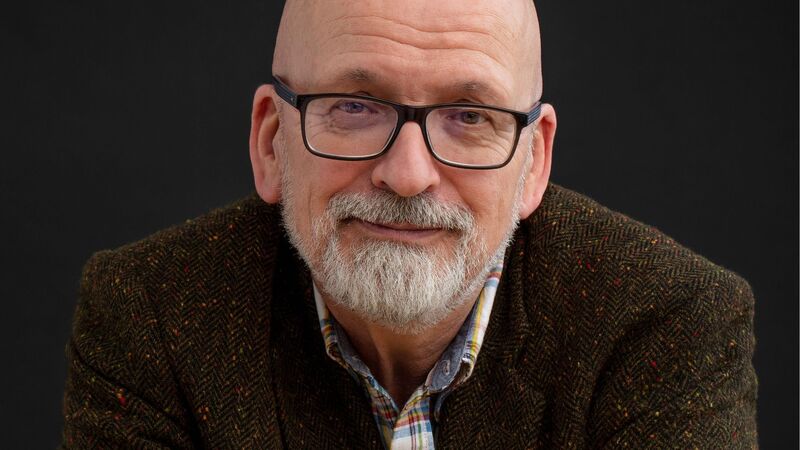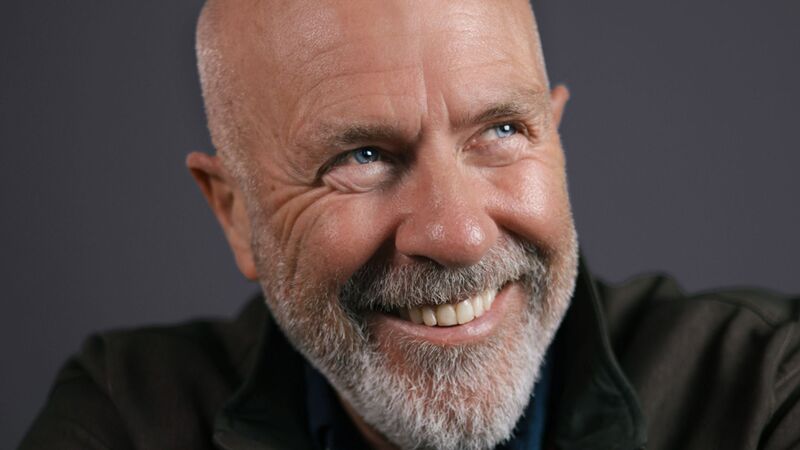You are viewing your 1 free article this month. Login to read more articles.
Booker Prize longlist sees Ishiguro, Cusk and Galgut up against two debuts
Nobel Prize winner Kazuo Ishiguro is on this year's longlist for the £50,000 Booker Prize, which he won in 1989, alongside previously shortlisted authors Damon Galgut, Richard Powers and Sunjeev Sahota.
Two debut novelists make this year's 13-strong longlist, announced this morning (27th July), with Nathan Harris' The Sweetness of Water (Tinder Press) and Patricia Lockwood's No One is Talking About This (Bloomsbury Circus). The judging panel also picked out works from Anuk Arudpragasam, Rachel Cusk, Karen Jennings, Nadifa Mohamed, Maggie Shipstead and Francis Spufford in a longlist dubbed "bold and surprising" by Waterstones.
Six of the longlisted books come from independent publishers: Bloomsbury, Granta, Faber and Holland House Books, which picks up its first Booker nomination. Faber has won the prize seven times, the second-highest number of wins for any publisher, just behind PRH imprint Jonathan Cape, which has won eight times. Six of the longlisted titles are from PRH imprints. Five authors on the longlist are from the UK, including two of dual-British nationality, with four authors from the US.
Ishiguro is nominated for Klara and the Sun (Faber), which explores the uncharted implications of AI to human relationships and the abiding question of what it means to love. The book has sold 59,087 copies via Nielsen BookScan's UK TCM, though Nielsen does not have figures for the lockdown period two weeks before its release. Despite that, it is Ishiguro's biggest-selling hardback in the BookScan era (since 1998) and was praised by judges for its "haunting narrative voice". They said: "This is a fiction that not only asks in general about the nature of consciousness and personal dignity, but presses home the assumptions we make about how we value some consciousnesses more than others, and how we make others serve the cause of our survival."
Ishiguro won the Booker in 1989 for The Remains of the Day (Faber), and has been shortlisted three times for the award: in 2005 for Never Let Me Go, in 2000 for When we were Orphans, and in 1986 for An Artist of the Floating World (all published by Faber).
South African author Galgut was shortlisted in 2006 for The Good Doctor (Atlantic Books) and in 2010 for In a Strange Room (Atlantic Books), and is chosen this time for The Promise (Chatto & Windus), which the judges said "is a testament to the flourishing of the novel in the 21st century". The story follows the fate of a white South African family "burdened with old lives, old wounds, crimes against humanity, dark history and misreckonings [and] becomes, cumulatively, the fate of South Africa itself".
American writer Powers was shortlisted for The Overstory (Cornerstone) in 2018 and longlisted for Orfeo (Atlantic Books) in 2014, and returns this year with Bewilderment (William Heinemann). The judges said they were "very moved" by the novel, which follows a widowed astrobiologist and his young son as they find their way in a world that has cast the boy as aberrant. They said: "Powers thrills us with intricate scientific ideas even as he inhabits the consciousness of the grieving, non-neurotypical child—and shows us the loneliness and complexity involved in parenting him."
British author Sahota was also shortlisted for The Year of The Runaways (Pan Macmillan) in 2015. His latest work China Room (Harvill Secker) weaves together two timelines and two continents, with the judges struck by Sahota's "brilliant twist on the novel of immigrant experience, considering in subtle and moving ways the trauma handed down from one generation to the next".
Canadian author Mary Lawson was longlisted in 2006 for The Other Side of the Bridge (Vintage) and returns this year with A Town Called Solace (Chatto & Windus), which follows the stories of three people at three different stages in life, all of whom are grappling with loss. Judges said they were "captivated" by the "beautifully paced, compassionate, sometimes wry examination of small-town lives".
Debut American author Harris wowed judges with The Sweetness of Water (Tinder Press), which tells the story of a fictional small town in the American South immediately after the Civil War. The judges said they were "incredibly impressed by the way it probes themes of transhistorical importance—about race, sexuality, violence and grief—through meticulously drawn characters and a patient examination of their relationships".
Fellow debut American author Lockwood gets the nod for No One is Talking About This (Bloomsbury Cirus), described as "a brilliantly funny book about tragedy and survival". It is also shortlisted for the Women's Prize for Fiction. Judges said it was "a very uncomfortable book, which makes its fundamental and simple compassion all the more powerful".
Sri Lankan author Arudpragasam is up for A Passage North (Granta Books), which revolves around the philosophy of the present as a disease of the past. Judges commented: "It is in subverting our sense of time and even of how a story should be told that this novel achieves its strongest effect and strikes an indelible mark on the reader’s soul."
Meanwhile, British-Canadian author Cusk's Second Place (Faber) impressed the judges with "questions about art, love and what it takes to live a free life, told in exquisite prose and with a forensic eye for social observation".
South African writer Jennings was longlisted for An Island (Holland House Books), which tells the story of a man who has exiled himself from the known world only to find himself called to the service of others, themselves exiled from the world by cruelty and circumstance. Judges said that Jennings "deftly constructs a moving, transfixing novel of loss, political upheaval, history and identity, all rendered in majestic and extraordinary prose".
British/Somali writer Mohamed made the list with The Fortune Men (Viking), which looks at "the many-faceted life of dockland Cardiff in the 1950s". It was praised by the judges for drawing out each cultural voice "richly and sympathetically". They said: "The story is rightly dominated by a single, shocking instance of legal violence against an individual. A reminder that the scars of the murderous effects of routine and unquestioned racism are not quickly healed, and shouldn't be."
American author Shipstead also got a nomination for Great Circle (Doubleday), which impressed the judges with its "ambition and epic sweep". It tells the story of the doomed fictional aviatrix Marian Graves and a Hollywood actress cast in her biopic decades later. The judges said: "We felt that we knew these people and found ourselves comparing the experience of reading it to that of reading some of the great novels of the 19th century. Yet, Great Circle is fresh and utterly unusual."
Finally, British writer Spufford joins the list with Light Perpetual (Faber), which begins as a V2 rocket hits a Woolworths in south London in 1944, killing five children—and continues with an arresting counterfactual looking at what would have happened if they had lived. Judges said it was "an absorbing chronicle of the five’s possible trajectories into old age... the novel made us reflect on the contingencies in every human life, and the purpose of fiction itself".
The judging panel is chaired by historian Maya Jasanoff and features writer and editor Horatia Harrod, actor Natascha McElhone, twice Booker-shortlisted novelist and professor Chigozie Obioma and writer and former Archbishop of Canterbury Rowan Williams.
Speaking about the longlist, Jasanoff said: "One thing that unites these books is their power to absorb the reader in an unusual story, and to do so in an artful, distinctive voice. Many of them consider how people grapple with the past—whether personal experiences of grief or dislocation or the historical legacies of enslavement, apartheid and civil war. Many examine intimate relationships placed under stress, and through them meditate on ideas of freedom and obligation, or on what makes us human. It’s particularly resonant during the pandemic to note that all of these books have important things to say about the nature of community, from the tiny and secluded to the unmeasurable expanse of cyberspace.
"Reading in lockdown fostered a powerful sense of connection with the books, and of shared enterprise among the judges. Though we didn’t always respond in the same way to an author’s choices, every book on this list sparked long discussions that led in unexpected and enlightening directions. We are excited to share a list that will appeal to many tastes and, we hope, generate many more conversations as readers dig in."
Gaby Wood, director of the Booker Prize Foundation, added: "In recent years Booker Prize longlists have drawn attention to various elements of novelty in the novel: experimentalism of form, work in unprecedented genres, debut authors. This year’s list is more notable for the engrossing stories within it, for the geographical range of its points of view and for its recognition of writers who have been working at an exceptionally high standard for many years. Some have already been rewarded with prizes (a Nobel here, a Pulitzer there). Two are debut novelists. Many have fallen within the Booker’s orbit before. To see them brought together, and to hear from them in these books, is to know that literature is in the most capable and creative of hands."
Waterstones fiction buyer Bea Carvalho called the longlist "a bold and surprising distillation of the year’s selection of novels". She said: "It is a hugely varied list, but there is a common thread of the power of hope in tough times, and the resilience of the human spirit to endure and thrive: an apt theme for the current moment. The list is bursting with literary stardom and acclaim, with six authors who have previously graced the Booker’s longlists. Compared with last year’s list there are fewer new voices celebrated, but Nathan Harris’ and Patricia Lockwood’s stunning and strikingly original debut novels stand out as strong contenders.
"I am delighted that the Booker longlist presents us with an opportunity to share these 13 excellent works with many new readers. This moment carries the potential to create bestsellers and cement successful onward careers: a welcome opportunity for any author, particularly after the uncertain start to the year. We look forward to seeing what the judges choose for their shortlist on 14th September."
The Bookseller's books editor Alice O'Keeffe said: "At first glance this looks to be a fairly safe longlist with no standout surprise omission a la Maggie O’Farrell’s Hamnet or Hilary Mantel’s The Mirror and the Light from last year’s longlist, although I note that Sally Rooney’s latest novel, Beautiful World, Where are You, would have been eligible and I had a secret hope both for Jennifer Nansubuga Makumbi’s The First Woman and Gwendoline Riley’s My Phantoms.
"There are fewer debut names than last year ‚Äì just two ‚Äì and the judges have opted for more familiar names with a track record: led by literary heavyweight Kazuo Ishiguro’s Klara and the Sun. I’m particularly thrilled that Francis Spufford’s Light Perpetual and Maggie Shipstead’s Great Circle ‚Äì both outstanding Books Of The Month in New Titles: Fiction ‚Äì have been chosen."
The shortlist of six books will be announced on 14th September, with the overall winner to be named on 3rd November in an award ceremony held in partnership with the BBC at Broadcasting House’s Radio Theatre. Last year Douglas Stuart won for his debut novel, Shuggie Bain (Picador).




